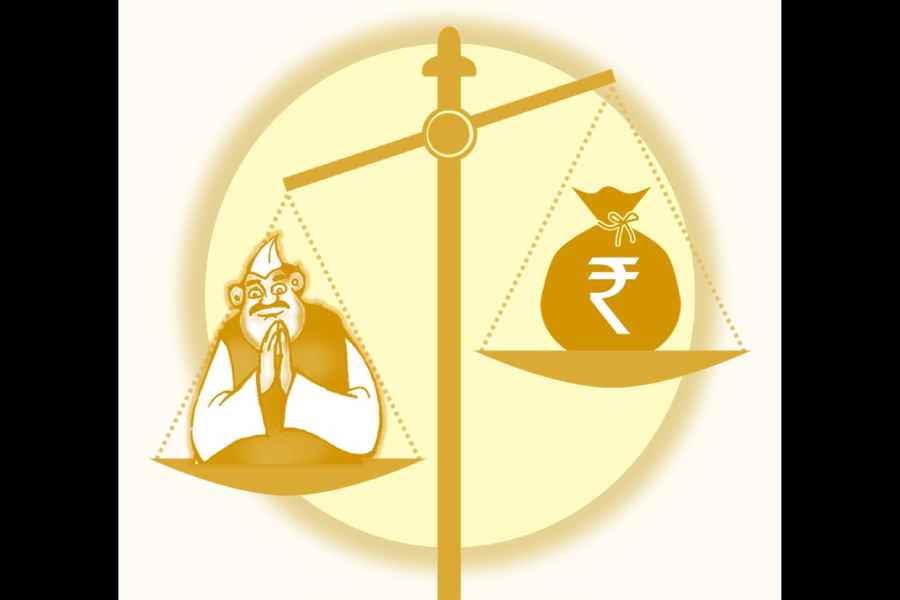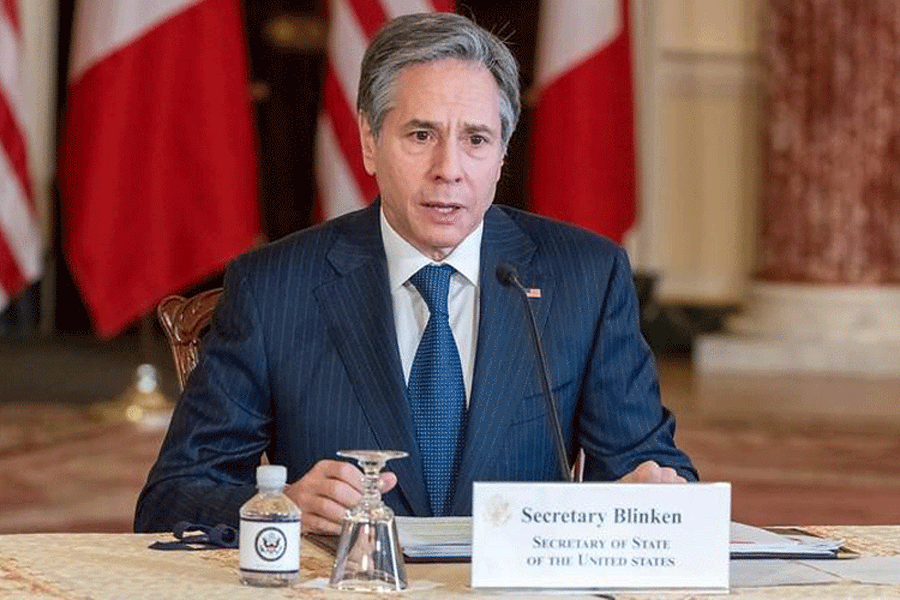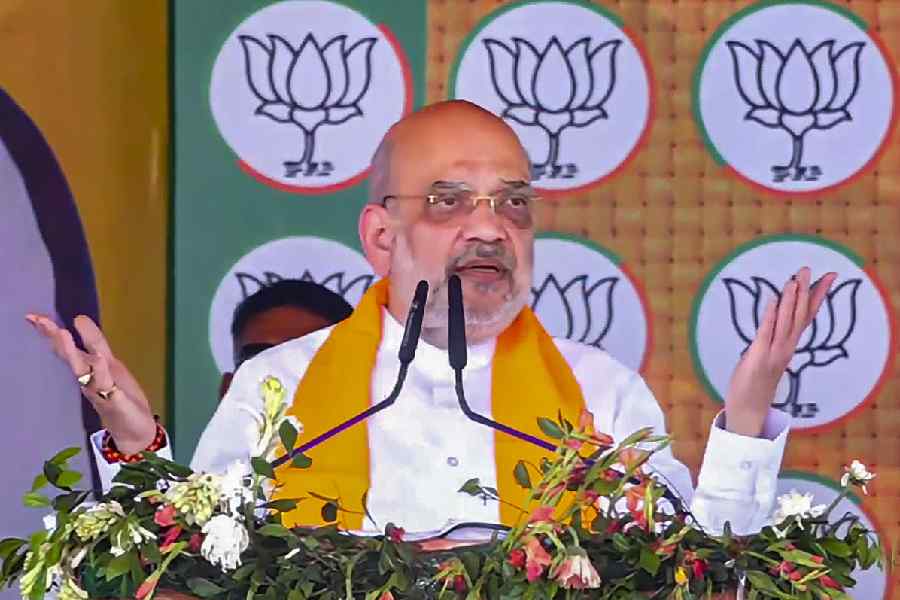There is a common perception that no matter who gets how many seats in the coming parliamentary elections, the next government at the Centre will be formed by the party with the fattest purse by enticing enough newly-elected legislators into its camp. This perception arises from what has happened of late in several states, which represents the commoditization of politics. Such commoditization entails that political power flows to the party with the fattest purse; whom the people elect does not matter, since a large number of those elected eventually end up being in the camp of the party with the fattest purse. That money matters in elections, in determining their outcome, not just in India but elsewhere too, has for long been a well-known fact; what is new, with the commoditization of politics, is that the outcome of the elections itself does not matter anymore.
The spread of commoditization is immanent in capitalism; its eventual incursion into politics therefore is not surprising. It represents a complete inversion of the ‘new’ liberal ideology, as opposed to classical liberalism, which emerged with John Maynard Keynes and has been widely prevalent since then. This ideology held that while laissez-faire capitalism was flawed, in particular in keeping large masses of working people unemployed, the intervention by a democratic State could rectify its flaws; that capitalism could be modified to become more humane through State intervention.
This ideology, of course, has been on the retreat for some time, with the neoliberal assertion, a throwback to classical liberalism, that the flaws of capitalism are greatly exaggerated, and that unemployment arises not because of the functioning of free markets but because markets are not allowed to function freely. If they were allowed to function freely, then the so-called flaws of capitalism would disappear. Markets should therefore be freed: State intervention is not just unnecessary, it actually makes things worse by imposing restrictions on the functioning of markets.
This false argument (this is not the place to go into this falsity) has been used of late to roll back State intervention; but both neoliberalism and Keynesian liberalism took a democratic State as their point of departure. With commoditization of politics, however, we are in a different world: with the purse size determining which party wields political power, we are in a situation where capitalism undermines the democratic process rather than the democratic process controlling capitalism to overcome its flaws. And with the recent statement by the chief economic advisor to the finance ministry that the government can do nothing about unemployment, this inversion of Keynes has reached its limit: we shall have unbridled capitalism controlling our lives, including the political scenario within which we live; if such control produces mass unemployment, then so be it. There is not even a pretence, as with neoliberalism, that it would not produce mass unemployment.
Politics as commodity represents the apparent negation of politics as class struggle (though it is class struggle in camouflage); it represents the pushing into the background of ideological politics (ideological not in the bad sense of being unscientific). Such pushing into the background was a hallmark of fascism in the 1930s; it has now returned under contemporary neo-fascism. The de-ideologization of politics and its reduction to a spectacle, complete with torch-lit marches and rallies, iconic posters and statues, and documentary films such as those by Leni Riefenstahl, had characterised Nazi Germany; and Walter Benjamin, the German philosopher, had seen such spectacle as a manifestation of commoditization, since the commodity itself, as distinct from merely useful objects, represents a spectacle. Now, however, under neo-fascism, politics is commoditized no longer as a spectacle but in its most banal form, as the acquisition of elected legislators.
Communal fascism, it may be thought, is not de-ideologizing; it introduces into people’s minds a communal ideology, which is an ideology like any other. But this is erroneous. It is as de-ideologizing as any fascist ‘ideology’, such as the Nazi ‘ideology’ mentioned earlier. Besides, the treating of people’s elected representatives as commodities that can be acquired requires that the people themselves should tacitly accept such acquisition as a routine phenomenon; it both presumes this and seeks to realize this. It attempts, in short, to reduce the people from being active subjects, as should be the case in any democracy, to passive objects.
Commoditization of politics therefore presupposes an objectification of the people, which is not just de-ideologizing in the sense of preventing any authentic thinking on their part, but even de-humanizing, for it entails a cynical manipulation of the people. This manipulation, of which one component is to instil the ‘Othering’ of a hapless minority whose so-called ‘ancestors’ are supposed to have committed injustices centuries ago for which the ‘descendants’ are meant to pay today, also extends to instilling among the people the acceptance of the phenomenon of acquisition of elected representatives. Manipulation of the public is thus a necessary complement of the commoditization of politics.
The other complement of the commoditization of politics is the widespread use of repression. Commoditization never occurs entirely voluntarily. Commodity production in the colonial economy had been introduced through a taxation system that forced peasants to take loans from traders for producing specific crops at pre-contracted prices; it had been forced commoditization. Opposition to commoditization which invariably exists is always repressed through coercion. The neo-fascist regime that commoditizes politics also, not surprisingly, complements it with massive repression. Commoditization of politics must be opposed, but any meaningful opposition to it must entail a revival of politics based on ideology.
Prabhat Patnaik is Professor Emeritus, Centre for Economic Studies and Planning, Jawaharlal Nehru University, New Delhi










